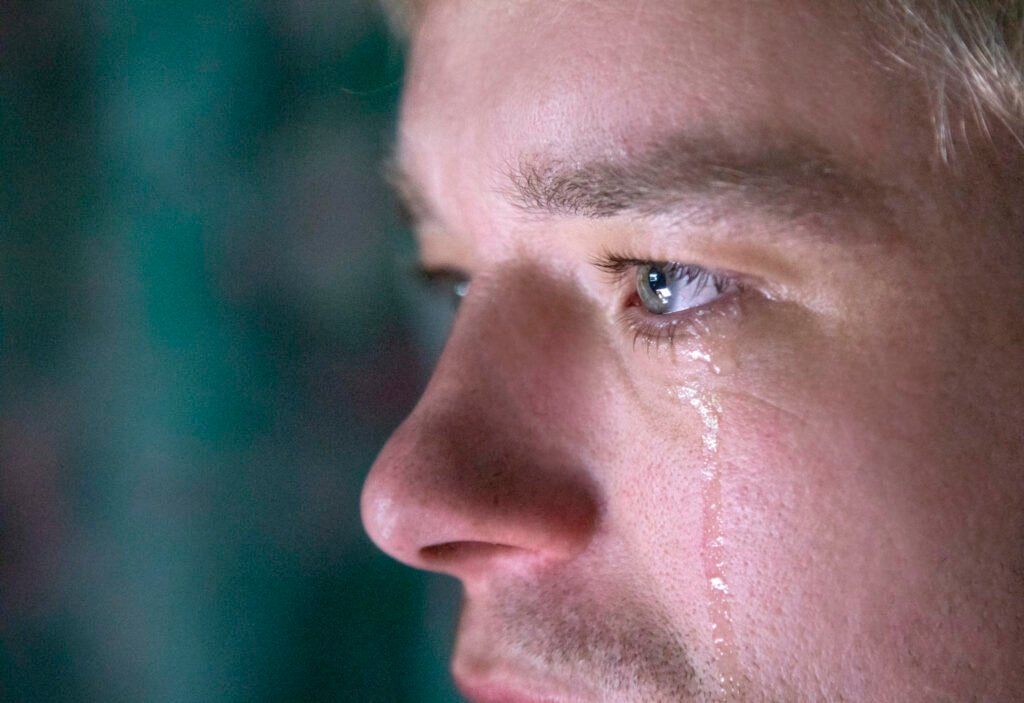
Many people have experienced an unexpected urge to a sense of fatigue and weakness in their limbs or crying after Gua Sha session. Understandably, this can be alarming. Is it a normal reaction, or is your body trying to send a warning?
In this article, we’ll explore the possible reasons behind these reactions from three perspectives: Traditional Chinese Medicine (TCM), physiology, and psychology.
- Feeling Crying After Gua Sha: A TCM Perspective
- A Physiological Perspective: Minor Trauma, Major Fatigue
- Feeing Crying After Gua Sha: A Psychological Perspective
- ❓ What’s Normal, and When to Be Concerned?
- How to Handle Post-Gua Sha Crying or Fatigue the Right Way
- Final Thoughts
Feeling Crying After Gua Sha: A TCM Perspective
According to Traditional Chinese Medicine, the human body operates through a network of meridians and a system of “Qi” (vital energy) and blood. When these channels are blocked, it can lead to various imbalances, such as liver Qi stagnation or phlegm obstructing the mind. This is often the root cause of many physical and emotional symptoms—and why people turn to Gua Sha for relief.
Gua Sha works by stimulating the flow of Qi and blood, helping expel harmful substances from the body. Interestingly, the tear glands are considered part of the body’s Qi and blood system. So when Gua Sha activates this internal movement, it may trigger the release of tears—a form of detoxification.
From this viewpoint, the urge to cry after Gua Sha is completely normal. While it doesn’t happen to everyone, it’s not something to be overly concerned about.
A Physiological Perspective: Minor Trauma, Major Fatigue
The act of scraping the skin during Gua Sha causes minor damage to the surface layers, which can trigger localized immune and metabolic responses. Your body then diverts energy to these areas to begin repair, leading to increased energy expenditure—and resulting in physical tiredness.
Additionally, Gua Sha stimulates the parasympathetic nervous system, which is responsible for rest, relaxation, and emotional regulation. This shift in nervous system activity can lead to emotional fluctuations, which may explain why some people feel like crying after treatment.
Feeing Crying After Gua Sha: A Psychological Perspective
Many modern individuals live under chronic mental stress—from work, relationships, or social pressure. As Gua Sha becomes increasingly recognized as a method for emotional and physical relief, more people turn to it during times of high stress.
After treatment, some people experience emotional release. The pressure and emotions that have been suppressed for a long time finally find a way out. This can manifest as tears or a profound sense of emotional exhaustion.
❓ What’s Normal, and When to Be Concerned?
If the crying urge or fatigue fades naturally within a day or two after the session, this is considered a normal response. It means your body is capable of self-regulating emotional and physical changes.
However, if these symptoms persist beyond several days—especially if you experience prolonged emotional instability, excessive bruising, or ongoing pain—you should seek medical attention. These could be signs of an abnormal reaction.
How to Handle Post-Gua Sha Crying or Fatigue the Right Way
Get plenty of rest and quality sleep
Drink warm water and maintain good nutrition
Practice mindfulness techniques like deep breathing or meditation
Stay emotionally aware—don’t suppress or judge your reactions
Final Thoughts
Gua Sha isn’t just a physical detox technique—it can also serve as an emotional release valve. If you experience minor emotional shifts after a session, there’s no need to panic. Understanding your body’s responses and taking gentle, supportive action can help you benefit from the full effects of Gua Sha—both inside and out.






